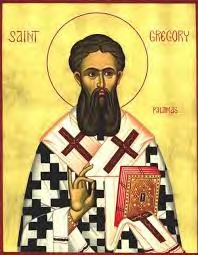 Although I realize that this article might seem to be very dense for many, what I do hope happens, if you read this, that you may gain a deeper appreciation of what has gone into the formulation of our religion through the efforts of many great persons. The dogmas that we believe in are truly complex. They are, however, beliefs that connect us directly to God and express our connection to Him in a very unique and marvelous way.
Although I realize that this article might seem to be very dense for many, what I do hope happens, if you read this, that you may gain a deeper appreciation of what has gone into the formulation of our religion through the efforts of many great persons. The dogmas that we believe in are truly complex. They are, however, beliefs that connect us directly to God and express our connection to Him in a very unique and marvelous way.
As you might guess, other questions arise when we seriously think about those things we believe in, especially that God as Three-In-One.
How are we to make sense of those biblical texts that seem to picture the Son as inferior to the Father? The Son sleeps, hungers, struggles in Gethsemane and dies on the cross. At times Jesus’ knowledge seems limited. For instance, in speaking of the last day and hour, Jesus comments that, “But about that day or hour no one knows, neither the angels in heaven, nor the Son, but only the Father.” If the Son’s knowledge is less than the Father’s, how can he share a common nature with Him? Is the possibility of a trinitarian model undercut by texts such as these?
These are significant questions regarding the incarnate Son that must not be sidestepped, yet Gregory dares to answers them in one sentence. “What is lofty you are to apply to the Godhead, and to that nature in him which is superior to sufferings and incorporeal; but all that is lowly to the composite condition of him who for your sakes made himself of no reputation and was incarnate – yes, for it is no worse things to say – was made man, and afterwards was also exalted.” The key to these difficult biblical texts is learning “to know which passages refer to his [divine] nature, and which to his assumed human mature.
Of course, the Son was not always incarnate. “He who is now man was once the uncompounded. What he was he continued to be; what he was not he took to himself.” In his saving descent into our world, human nature is “united to God, and became one [person].” In a series of vibrant shining contrasts Gregory highlights the dual nature of Christ’s person and actions.
Remember, the Church believes that Christ is truly and fully God and truly and fully Man and that one of His natures does not rule the other.
